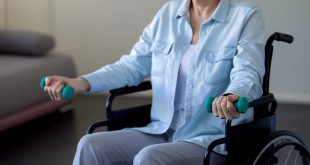Living with diabetes is a challenge. I discovered that over 10 years ago when I developed Type 2 Diabetes, triggered by the use of steroids prescribed by my oncologist to treat Non-Hodgkin’s Lymphoma. The treatment had led to a weight gain of approximately 17 kg, with my collar size increasing from 37 cm to 45 cm and of course the extra Canadian Tire I acquired.
I was given a grim prognosis with a life span of a few months. Exercising and trying to keep myself fit was the last thing on my mind. Moreover the treatment itself produced marked muscle weakness to the extent that I could not even manage a flight of 20 stairs to the second floor of the house. I had to sit on my haunches to go up backwards tackling each stair.
Through excellent care of my Cancer Care Team, fortunately I went into remission. However I have been left with Type 2 Diabetes. You can learn to live with diabetes, just as I did. I hope my story will be an inspiration.
I had to take a year off from my practice as a general internist, and I took this opportunity to learn to live with diabetes. I began to read the literature, especially on the self-management of diabetes. I returned to work at a Rehabilitation Centre where I was involved in starting a Cardiac Rehab program for people who had heart disease and had gone through a procedure such as coronary stents or bypass surgery, or who had ongoing angina symptoms from diffuse coronary artery disease. In addition to maximal medical therapy an exercise program was the only option.
I discovered that almost 25% of the patients were living with diabetes. Some were found to have diabetes at the time of diagnosis of the heart attack/stroke or had lived with diabetes for some years before developing the heart problem. Some had been diagnosed with pre-diabetes a few years earlier and had been advised to "watch what they ate and exercise" to prevent progression from pre-diabetes to diabetes. They had no guidance from anyone as to what was meant by exercise.
Toronto Rehab is home to one of North America’s largest and most comprehensive outpatient cardiac rehabilitation programs. In 2004, the Centre adapted the highly effective cardiac program to create an approach to exercise, education and lifestyle change geared specifically for people with diabetes.
In preparation I did my certification as Diabetes Educator for the program. I have learned much from my own experience of living with diabetes and listening to the experience of our patients in various stages of diabetes. I know from experience that you too can learn to live with diabetes.
 Diabetes Care Community Learn, connect and care
Diabetes Care Community Learn, connect and care



